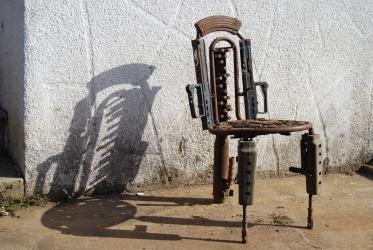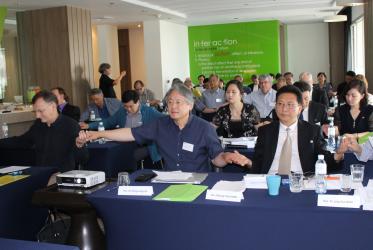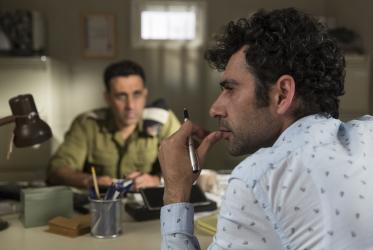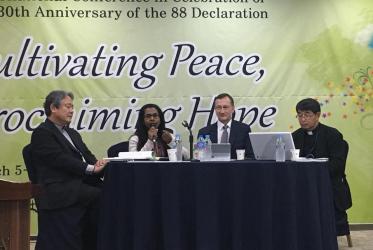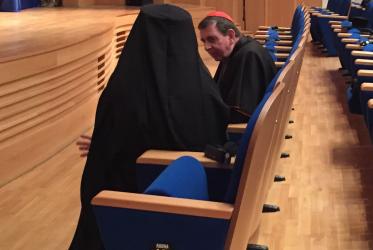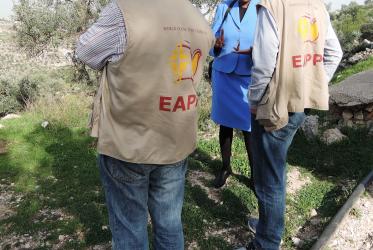Displaying 1 - 20 of 23
Peace and unity on the Korean Peninsula matters globally
25 February 2021
Film “Tel Aviv on Fire” wins Interfilm award
12 September 2018
WCC welcomes “powerful sign of hope” on Korean Peninsula
08 March 2018
"We have our work cut out for us"
10 August 2017
Cardinal Kurt Koch tells WCC News: We have to deepen our solidarity
05 November 2015
Local and global work saves lives
22 October 2015
Joint efforts to fight violence against children
18 June 2015
A presence to accompany vulnerable communities
31 March 2015

